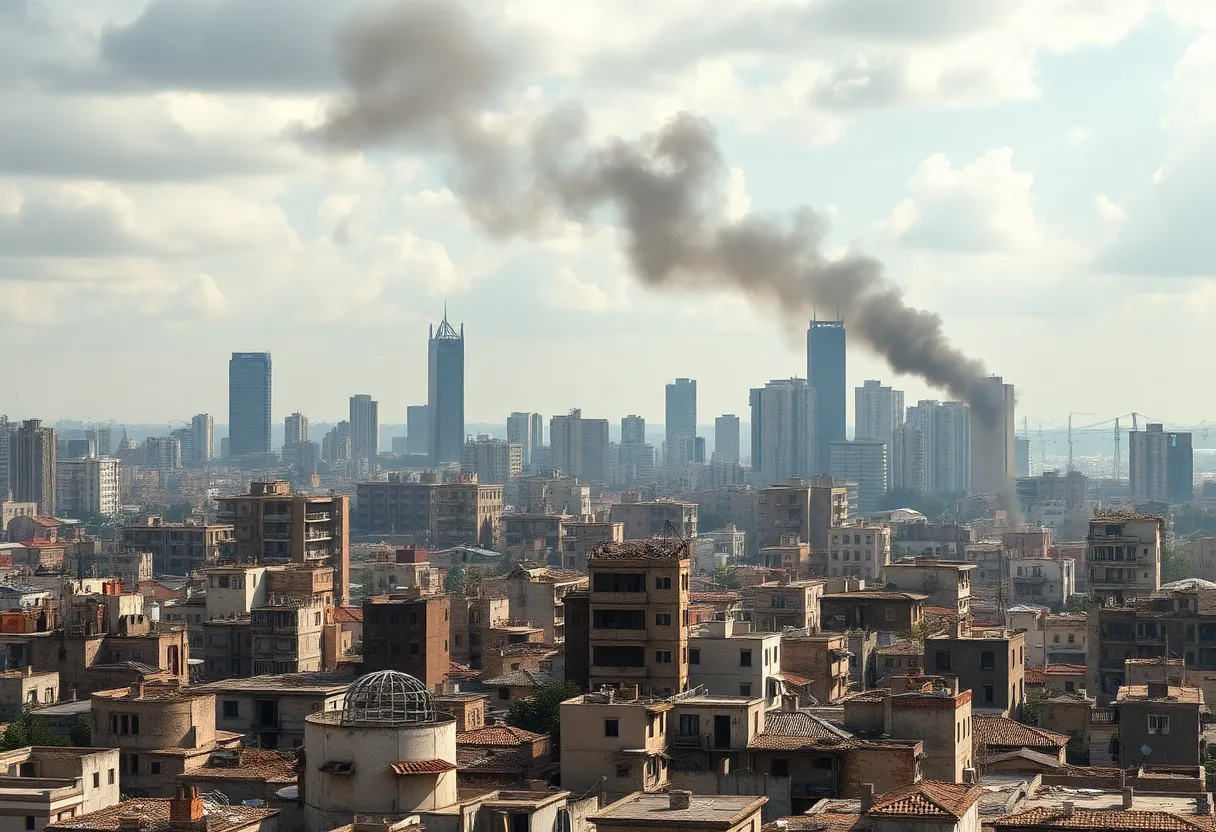News Summary
In a recent article, Bret Stephens argues against the labeling of Israel’s military actions in Gaza as genocide. He counters claims from organizations like the UN and Amnesty International, suggesting that the available data does not support such accusations. Highlighting the context of civilian casualties and the historical backdrop of the Israeli-Palestinian conflict, Stephens emphasizes the complexity of the situation while engaging critics who assert intentional harm against non-combatants. This ongoing conversation raises critical questions regarding human rights and the definitions of genocide.
New York – Bret Stephens, an opinion columnist, recently published an article defending Israel against accusations of genocide amid the increasing violence in Gaza. The column, titled “No, Israel Is Not Committing Genocide in Gaza,” counters claims from various international organizations that state Israel’s actions could be classified as genocidal.
Several global institutions, including United Nations bodies and Amnesty International, have designated the Israeli military actions in Gaza as genocidal. In response, Stephens scrutinizes the data surrounding the conflict. He raises questions about the intentions of the Israeli government and the proportionality of the civilian death toll, noting that the official Palestinian death count has reached “nearly 60,000.” This figure is significant to Stephens, who argues that if genocide were truly occurring, the death toll would likely be higher.
As of November 2024, it has been reported that 17,400 children have died in Gaza since the conflict escalated. Nevertheless, Stephens contends that these figures do not sufficiently support the label of genocidal actions, suggesting that the evidence of intent is lacking. He cites the UN Convention on the Prevention and Punishment of the Crime of Genocide, stating that the outlined criteria for genocide do not apply to the situation in Gaza based on the available data.
Critics of Stephens’ argument point to the devastating loss of life among children and civilian casualties, suggesting that such a high death toll and the targeting of civilian infrastructure imply a deliberate intention to harm non-combatants. Human rights organizations assert that attacks resulting in civilian deaths and suffering may constitute genocidal behavior, especially when viewed in the context of prolonged military operations.
Moreover, evidence has surfaced indicating severe humanitarian crises within Gaza, highlighting the results of resource deprivation as a potential component of genocide. Reports from Gaza health officials indicate that at least 15 Palestinians, including four children, succumbed to starvation within a single day. Forcing a population into dire conditions can fall under the definitions ascribed to genocide, based on both historical and legal accounts.
Analyzing the humanitarian situation further reveals that over 1,000 Palestinians have been killed while trying to access food from the Gaza Humanitarian Foundation, which operates with backing from Israel and the U.S. Despite these alarming statistics, Stephens suggests that operational disarray within humanitarian efforts does not equate to genocide, framing the Israeli military’s actions as necessary in the context of defense rather than an outright campaign of extermination.
In addition to having voiced his beliefs about the current conflict, Stephens’ article touches on the historical context of the Israeli-Palestinian dispute. Critics argue that the historical actions of Israel towards Palestinians have consistently reflected a strategy aimed at reducing and ultimately eliminating the Palestinian presence, which is framed as a narrative that detracts from the day-to-day realities faced by Gazans. It is suggested that such perspectives serve to sanitize the interpretations of military tactics employed by Israel.
The ongoing debate around the situation in Gaza underscores a larger discourse on human rights, warfare, and the definitions of genocide. With opposing viewpoints presented, the conversation continues to evolve as the conflict persists. The discourse remains essential in understanding not only the dynamics at play but also the implications of defining national and military actions as genocidal or otherwise, allowing a comprehensive examination of a complex and dire humanitarian crisis.
Deeper Dive: News & Info About This Topic
HERE Resources
Jamaal Bowman Considered for NYC Schools Chancellor Role
Political Turmoil in New York City Following Mayor Primary
NYU Withholds Diploma of Student Over Graduation Speech Controversy
NYC Department of Education Suspends Mass Communications
Additional Resources
- The New York Times: White House Correspondent
- Wikipedia: Genocide
- Al Jazeera: Genocidal Journalism
- Google Search: Israeli-Palestinian conflict
- The New York Times: Mitchell Jackson Publicist
- Google Scholar: Genocide Definition
- The New York Times: David Mazzarella Dead
- Encyclopedia Britannica: Gaza
- The New York Times: Al Jazeera Journalists Bios
- Google News: Gaza Humanitarian Crisis

Author: STAFF HERE NEW YORK WRITER
The NEW YORK STAFF WRITER represents the experienced team at HERENewYork.com, your go-to source for actionable local news and information in New York, the five boroughs, and beyond. Specializing in "news you can use," we cover essential topics like product reviews for personal and business needs, local business directories, politics, real estate trends, neighborhood insights, and state news affecting the area—with deep expertise drawn from years of dedicated reporting and strong community input, including local press releases and business updates. We deliver top reporting on high-value events such as New York Fashion Week, Macy's Thanksgiving Day Parade, and Tribeca Film Festival. Our coverage extends to key organizations like the Greater New York Chamber of Commerce and United Way of New York, plus leading businesses in finance and media that power the local economy such as JPMorgan Chase, Goldman Sachs, and Bloomberg. As part of the broader HERE network, including HEREBuffalo.com, we provide comprehensive, credible insights into New York's dynamic landscape.





